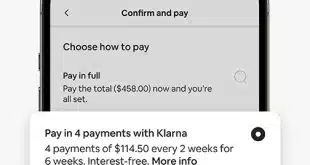PIN-debit is now live on the Web with Monday's announcement that Accel/Exchange is the first electronic funds transfer network to roll out such a service. The network, a unit of Brookfield, Wis.-based Fiserv Inc., is making the PaySecure system from technology provider Acculynk Inc. available to its membership base this month. Other EFT networks, however, may soon join Accel/Exchange. Pulse, NYCE, Shazam, Credit Union 24 and Alaska Option all are testing the PaySecure system. “This is a significant announcement because Accel/Exchange is the first of our six EFT networks to enable PaySecure across all of their eligible issuers,” Nandan Sheth, Atlanta-based Acculynk's president and chief operating officer, tells Digital Transactions News by e-mail. “The Accel/Exchange announcement validates our value proposition to issuers in delivering a more profitable and secure form of online debit that cardholders like and will use. Our pilot showed that one out of every two consumers choose to use PaySecure when presented the option.” Accel/Exchange, which has about 2,500 financial-institution members, announced a test of Acculynk's system just over a year ago (Digital Transactions News, Oct. 23, 2008). Eight members participated, according to Michael Kelly, general manager of the Morris Plains, N.J.-based network. On the acceptance side, five merchants participated. “It's gone really well,” Kelly tells Digital Transactions News. Credit cards have been the main currency of the commercial Internet for about 15 years now, although signature-based debit cards and rising alternatives such as PayPal Inc. and a host of other companies have cut into credit's transaction share. But PIN-debit, while more secure than credit and signature-based debit cards at the point of sale and popular with consumers and merchants, has practically no presence on the Web. That's because of operational difficulties in making entry of the PIN easy and secure, not to mention fears by debit card issuers that PINs could be compromised online. Kelly, however, says the Acculynk system proved secure in the tests. Accel/Exchange is “constantly maintaining vigilance on that,” he adds. Despite success in test, a big question is whether issuers in the broader market now agree that online PIN-debit has become easy and safe enough to offer to consumers and will produce an acceptable revenue stream. Credit and signature-debit card interchange is generally higher than PIN-debit interchange, and Visa, MasterCard and banks encourage signature-debit card usage through zero-liability protections in case of fraud. But Sheth says Accel/Exchange's issuers are giving PaySecure a thumbs-up. “It's anywhere between 1,500 and 2,000 issuers?these are the ones that will be moving forward,” he says. To make online purchases, consumers enter their card number and associated information as they normally would at a merchant's checkout page, and then they enter their PIN on Acculynk's patented graphical, scrambling PIN-pad. The software encrypts the PIN and sends it along with the card data across the Accel/Exchange network, with transactions settling in one to two days. Shoppers do not leave the merchant's site during the checkout process, nor do they have to register in order to use their PIN-debit cards. Test merchants were AirTran Airways; Ace Hardware Outlet; JJ Buckley, an online wine seller; ShoppersChoice.com, a general merchandiser, and 2Checkout.com, a reseller linked to 250,000 merchants, according to Kelly. Accel/Exchange didn't disclose the merchant acquirer or acquirers for the test, but Kelly expects many more merchants to begin accepting PIN-debit online because the test attracted considerable attention both from acquirers and Web merchants. “The interest from the merchant community was huge,” he says. Interchange rates, which weren't disclosed, will reflect Accel/Exchange's current schedule and, like other cards, will be higher than POS rates. But online PIN-debit will still be competitively priced for merchants, Kelly says. The service also will bolster banks and credit unions in their efforts remain focal points in online payments as tech companies and non-bank processors capitalize on a still-fluid market. The PaySecure system enables the issuer's brand to appear during the payment process, Kelly notes. “Online we're playing defense for our banks and credit unions,” he says. “PayPal and others are trying to interact with the consumer, and they're having some success. We think the [financial institution's] brand is important here.” Acculynk earns an undisclosed amount of revenue with each PaySecure transaction.
Check Also
A Global Survey Uncovers a Strong Following for Stablecoins
Research released early Tuesday argues stablecoins have made their move out of niche applications and …






